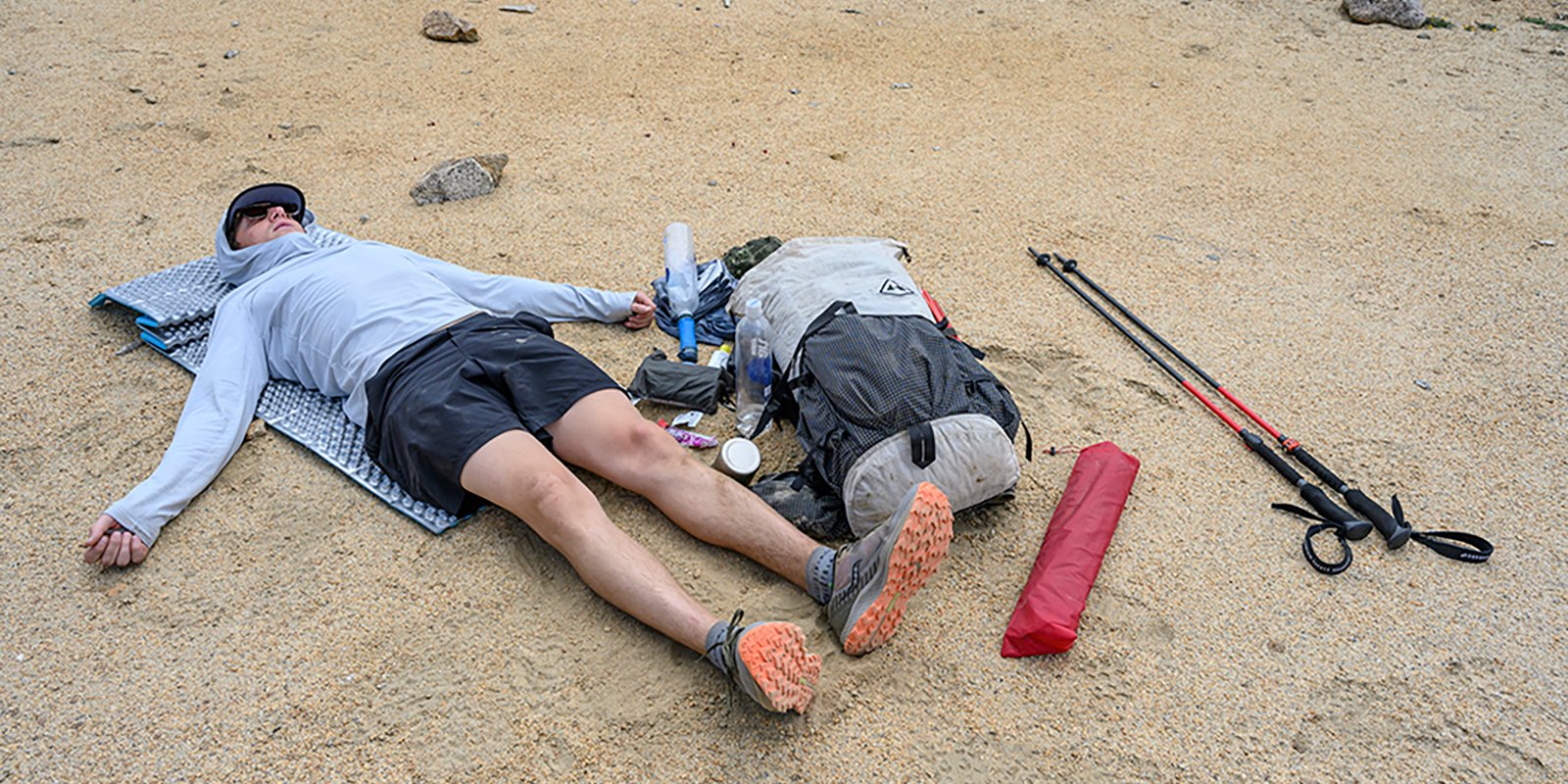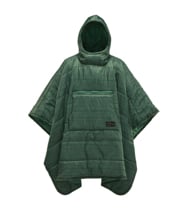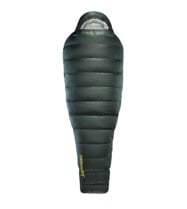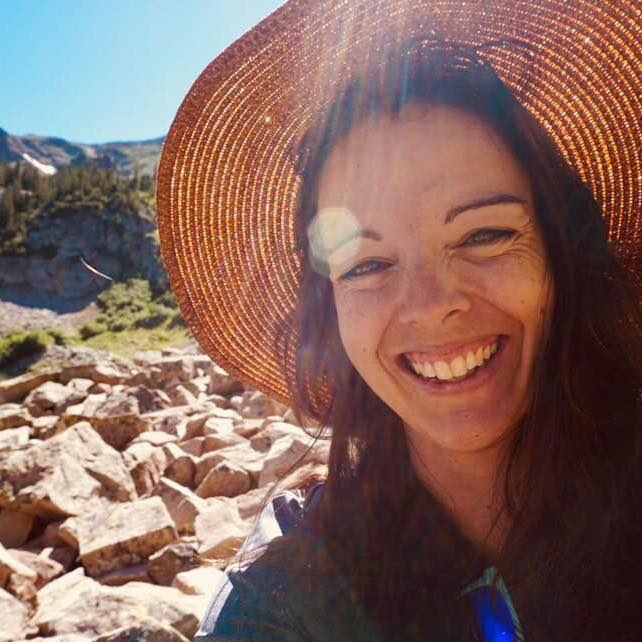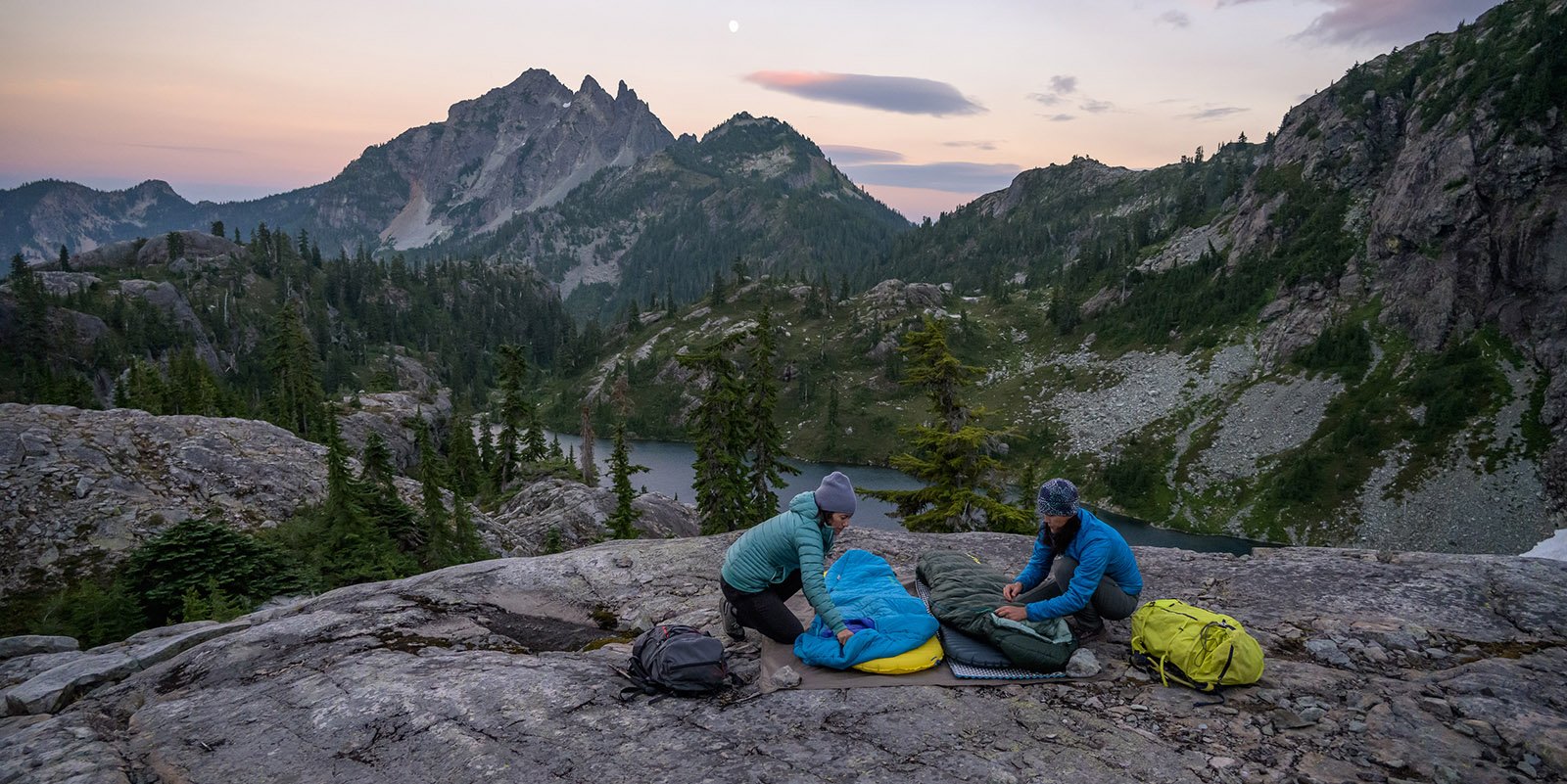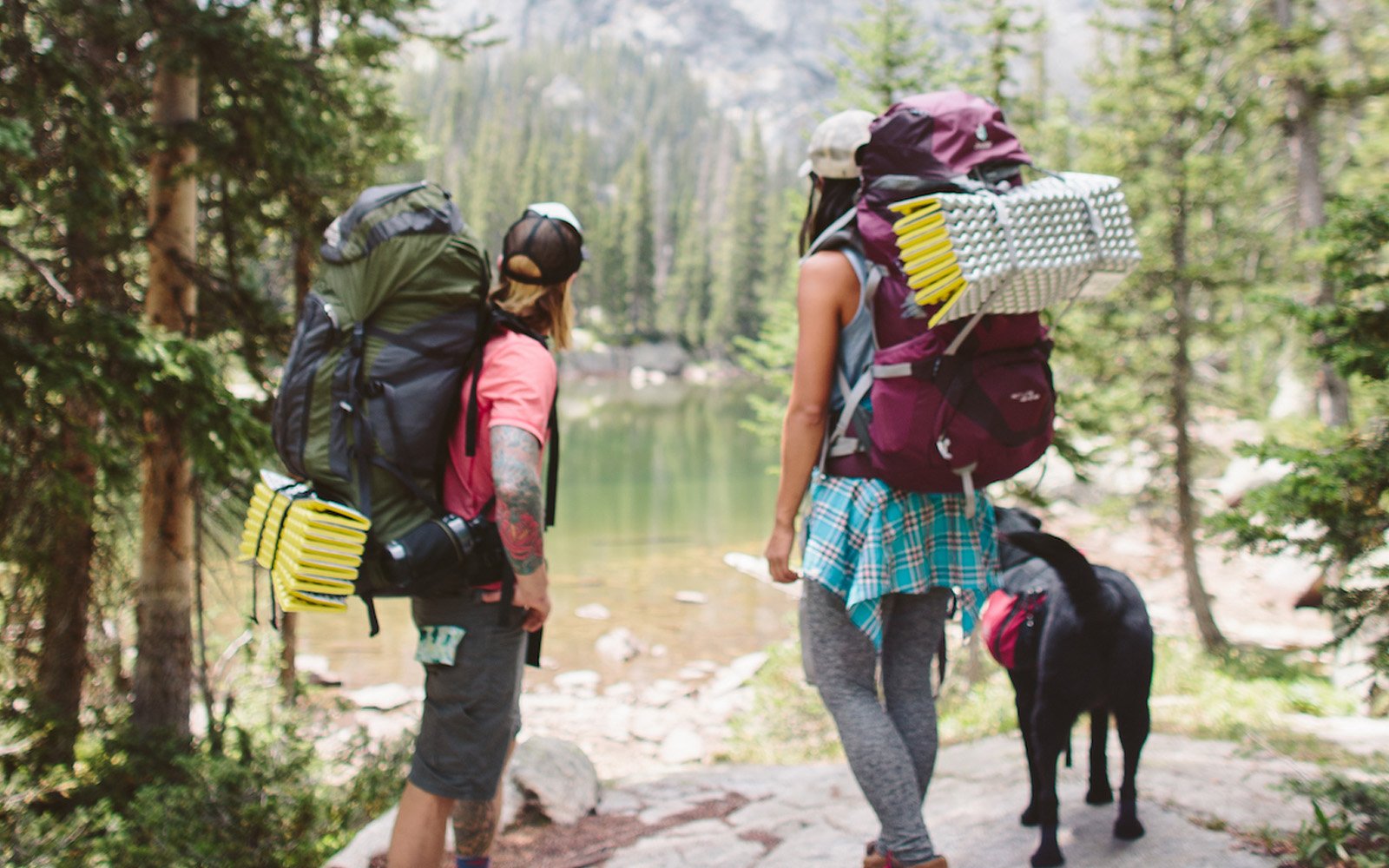It was only when I returned home from the Appalachian Trail that I realized my childhood bed was too soft. It welcomed me with open arms, but my body had been hardened and chiseled by the mountains for 4.5 months. I struggled to sleep. After several hours of staring into the darkness, I got up, unpacked my Therm-a-Rest Z Lite™ sleeping pad, and lay on top of the worn foam. Maybe, I thought, re-creating life on the trail would save me from my next wave of post-trail depression. The hard ground was familiar. I slipped into sleep wondering when home had become a foreign place.
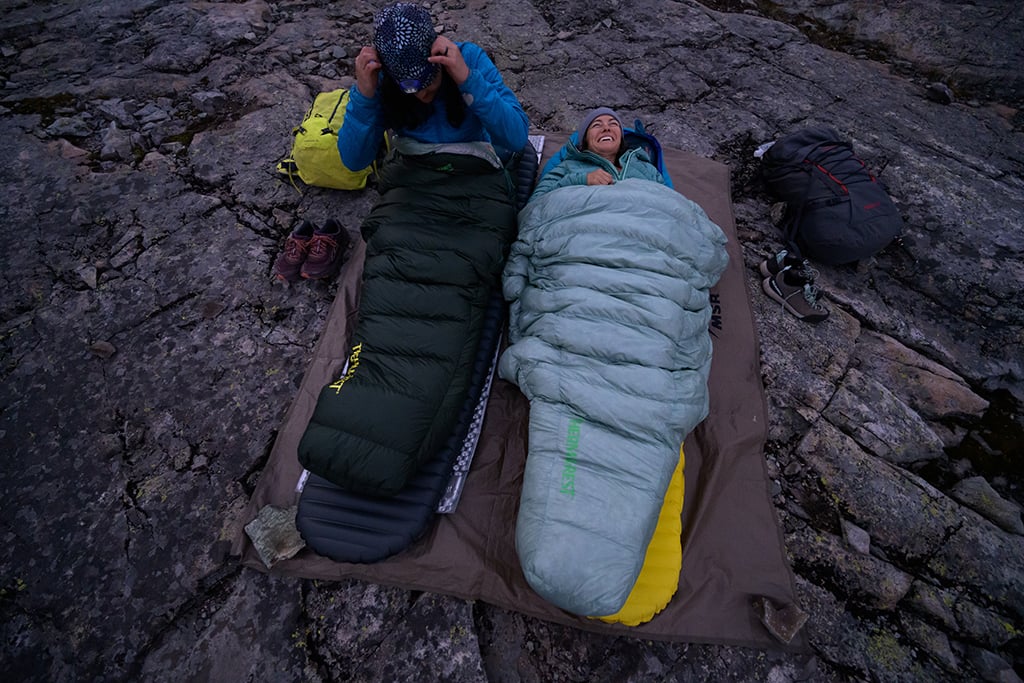
When thru-hikers return from our expeditions, many of us experience post-trail depression. We return to normal life after completely revolutionizing our lives, only to feel misplaced in society and its expectations. Over the years, I’ve learned that being conscious about the way I spend the off-season keeps me motivated and less depressed. For me, this often looks like dabbling in winter adventures or planning next season’s trips. For others, this chapter of life could involve saving money for big trips or learning a new skill.
Why Adventure Can Be So Transformative
Completing an extreme adventure like a thru-hike is naturally transformative because of the amount of effort and mental stamina it requires. On long trails, your body slowly builds itself up to be extremely strong and efficient. And your mind begins to develop a similar type of efficacy.
Still, I think the reason my first thru-hike was so transformative was that it confirmed there is a different way for me to exist in the world. It demonstrated that I didn’t have to bide my time in a cubicle until retirement if I didn’t want to. Moreover, I learned I was capable of navigating and overcoming more challenges than I’d ever imagined. I built new and vital confidence.
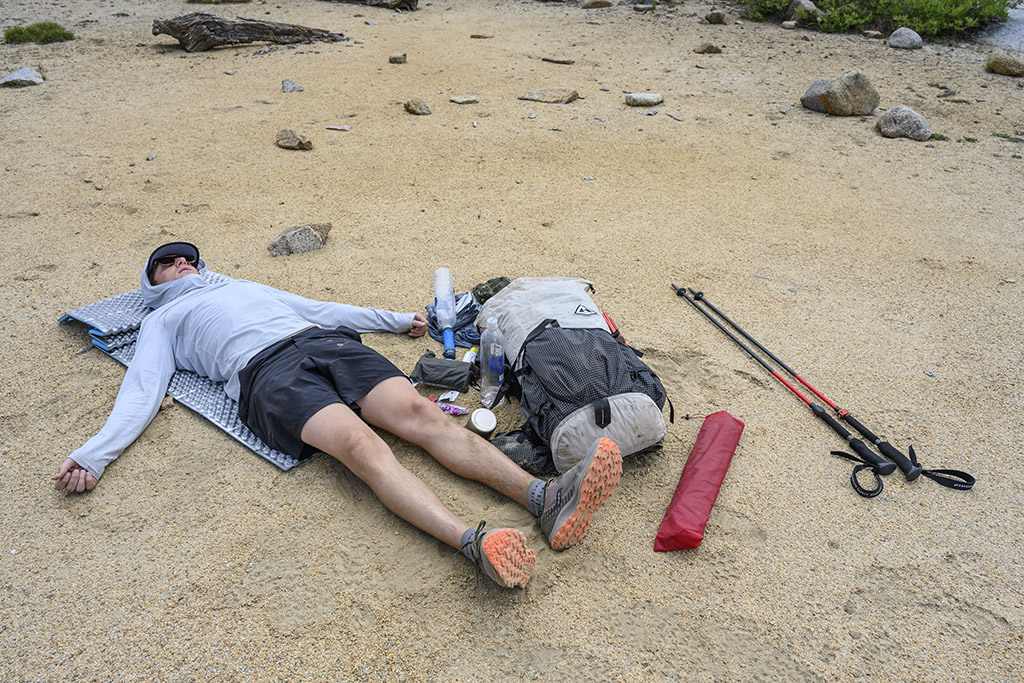
Post-Trail Depression and Why It Happens
After such an immersive and prolonged experience, it’s little wonder why snapping back to conventional day-to-day life can spark the winter blues. It can feel like all the progress you’ve made has circled you back to the exact place that you were attempting to leave. It can also leave you feeling purposeless, and with fewer endorphins.
After hiking all day for months on end, your body probably goes from experiencing a regular supply of endorphins to considerably less. Social circles can seem to dissipate. And on top of it all, there can be a number of financial factors that impede the transition back to non-trail life. But it doesn’t have to be a miserable or hopeless situation. Instead of giving into post-trail depression for the season, consider tackling a few of these tasks this season:
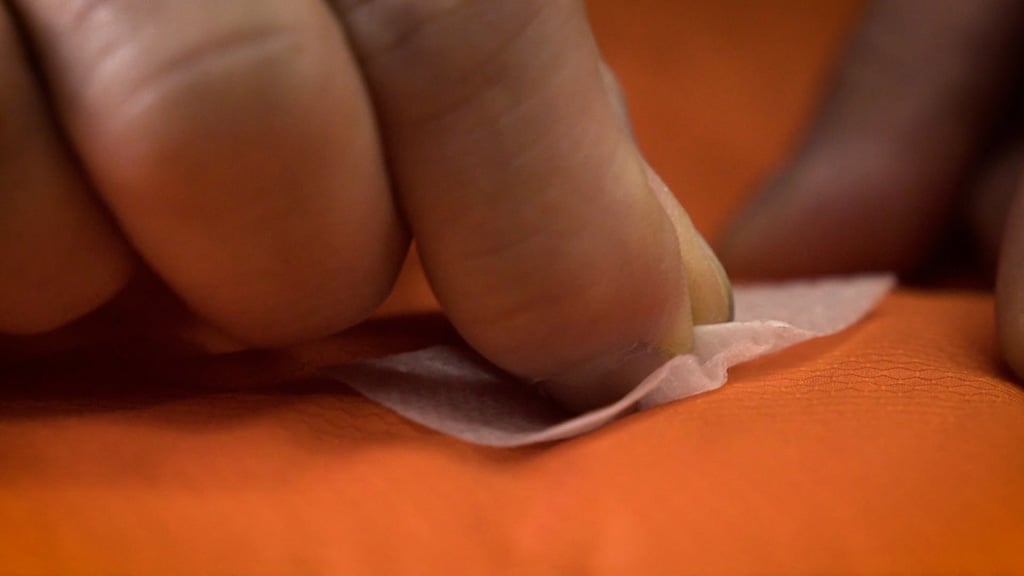
1. Repair or Upgrade Your Gear
The off-season is a fantastic time to take stock of your gear and to repair any damage that the previous season might’ve inflicted. Go over your tent with a careful eye. Check your sleeping pad for punctures and patch it if need be. Take this time to wash your sleeping bag. Apply waterproof coatings to any gear that needs it. Doing these steps will ensure gear is ready to hit the ground running come next season.
While your recent trail experiences are still fresh, it can be helpful to create a list of changes or upgrades you want to make to your gear, as well. Want to swap your pack out for a different one? Need to drop a few ounces from your base weight? This is the best time of the year to handle these types of changes. It’s also when you’re likely to see some of the best sales.
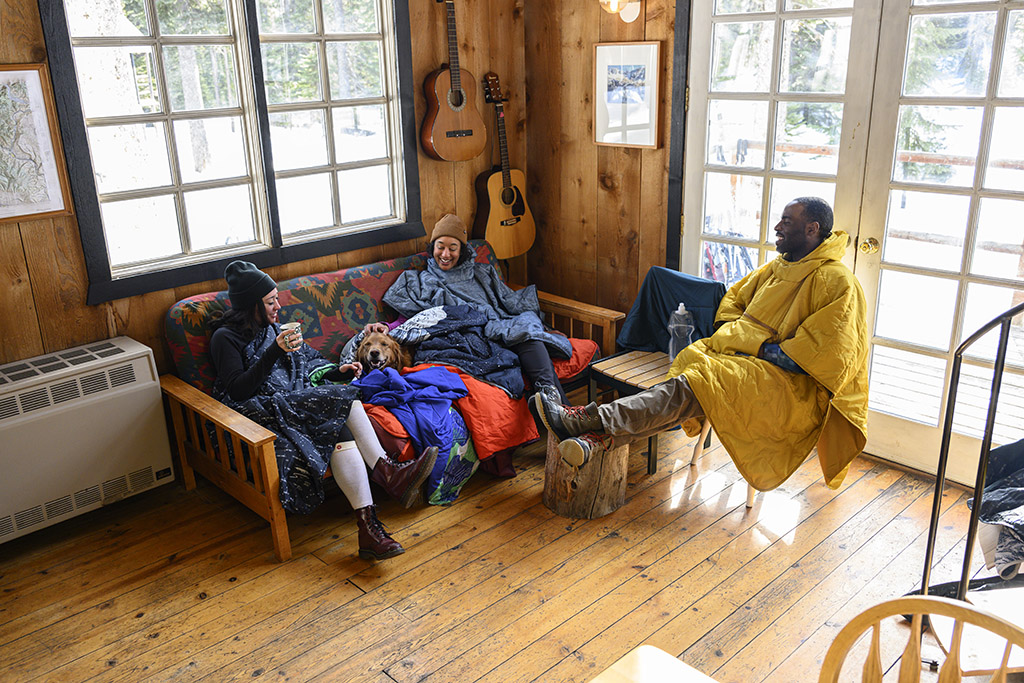
2. Plan Your Next Adventure
There’s a shelf in my cabin where I keep my collection of guidebooks and maps. I walk past it every morning when I get out of bed, and every evening when I’m getting ready to turn in for the night. Most of the time, my maps sit there collecting dust. But I keep them in a place where I can see them, because doing so gives me ideas.
To keep myself occupied throughout the year, I often come up with a variety of different adventures that I want to tackle both locally and in distant places. I like to have a list that varies in distance and type. So, when I’m in the mood and I have the time, I can quickly refer to my list of adventures and hit the trail.
The off-season is a great time to handle more administrative tasks, like permitting. As our national landmarks are becoming more and more popular, it can be harder to access them on a whim. But you can use the winter to study the permitting guidelines and optimize your chances of getting to your dream spots.
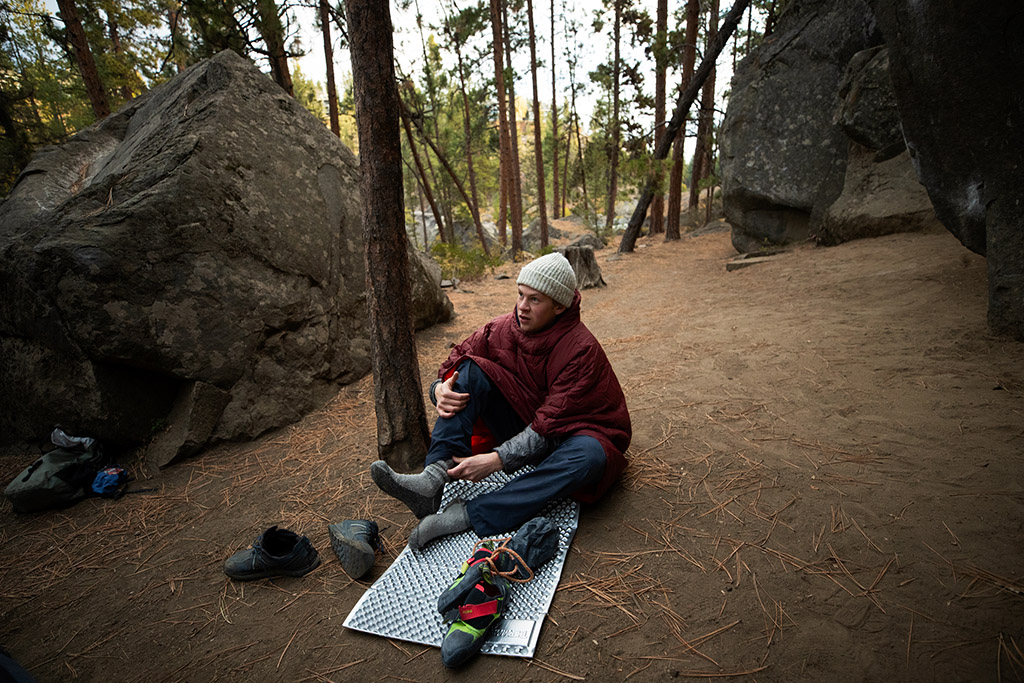
3. Train for Your Next Endeavor
Thru-hiking exercises a very specific set of muscles, leaving other areas of the body weakened. But winter temperatures don’t have to be a deterrent to getting in shape. Instead, the off-season can be used to strengthen the whole body and work on mobility. You might even get into a new sport like climbing or swimming to stay well-rounded and keep your mind busy throughout the winter.
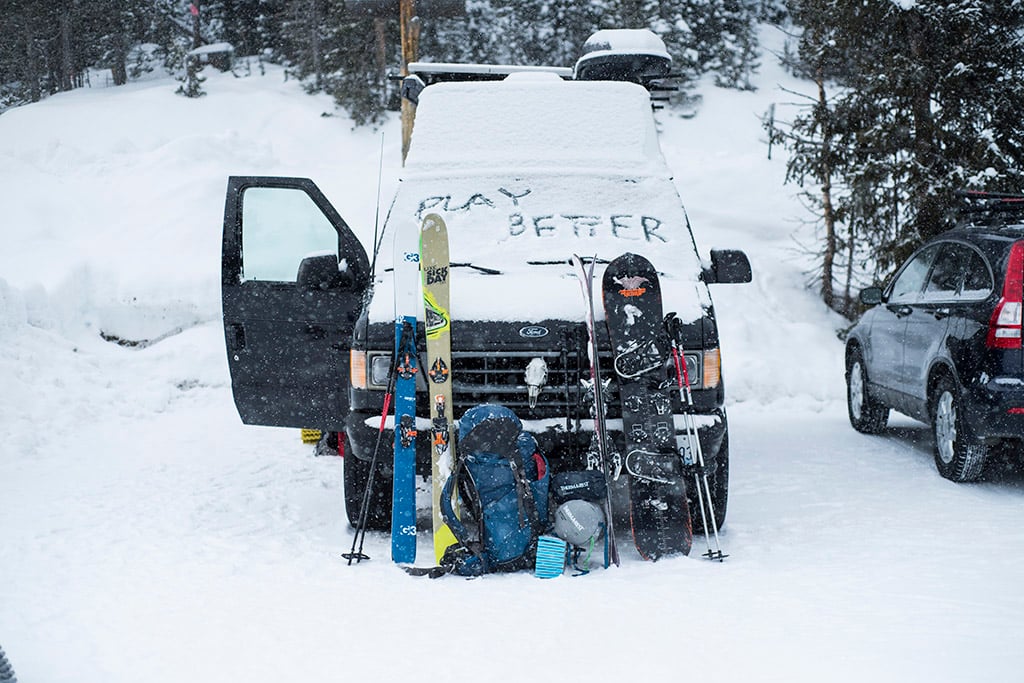
4. Learn a New Skill
One good way to ward off the winter blues is by keeping yourself busy. Fine-tuning skills that you already have or learning a new skill is a great way to be productive, while also better preparing yourself for the coming adventure season. You could practice orienteering and improve navigation during difficult situations. Develop new recipes or dehydrate trail meals ahead of time. Or, take an avalanche safety course in order to keep yourself safer in winter situations.
You could also:
- Learn how to build better fires.
- Practice your knots.
- Learn essential survival practices.
- Identify different bear hangs and practice them.
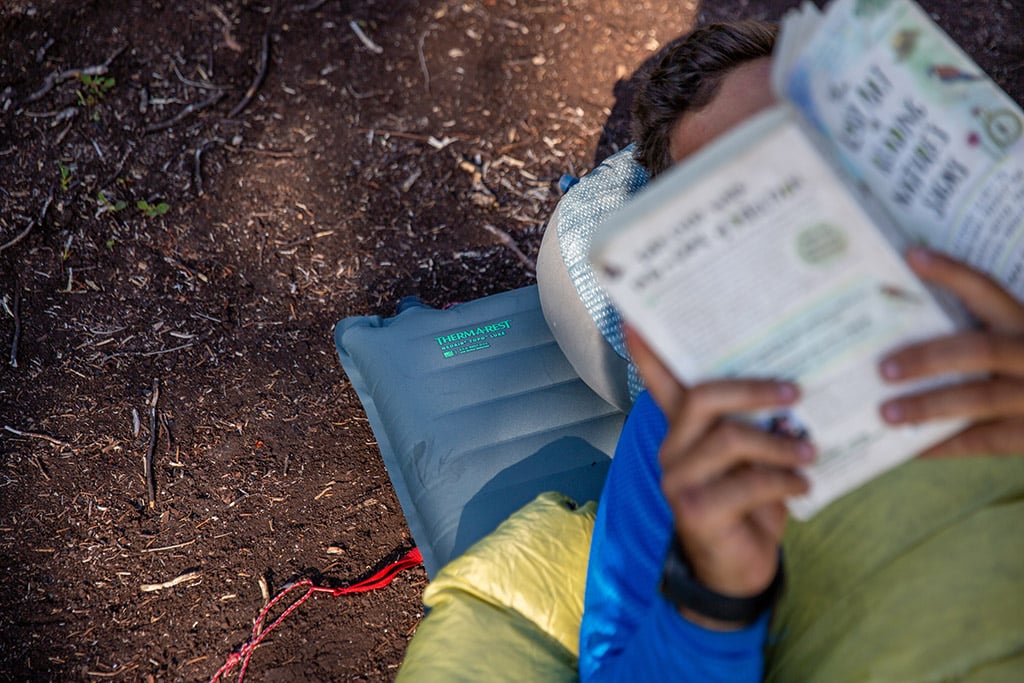
5. Stay Inspired by Reading Adventure Books
Rest is an important part of fitness. Without it, your body never has the chance to fully heal itself. But if you’re someone who has a hard time sitting around with an idle mind, you might stay inspired during the off-season by reading adventure books.
Reading about other people’s experiences can provide a sense of connection. But it might also inspire new ideas about adventures you want to undertake, or ways to tackle your next endeavor.
Some popular hiking and adventure books include:
- Born to Run by Christopher McDougall
- A Walk in the Woods by Bill Bryson
- Into Thin Air by Jon Krakauer
- The Dharma Bums by Jack Kerouac
- The Pursuit of Endurance by Jennifer Pharr Davis
- The Snow Leopard by Peter Matthiessen
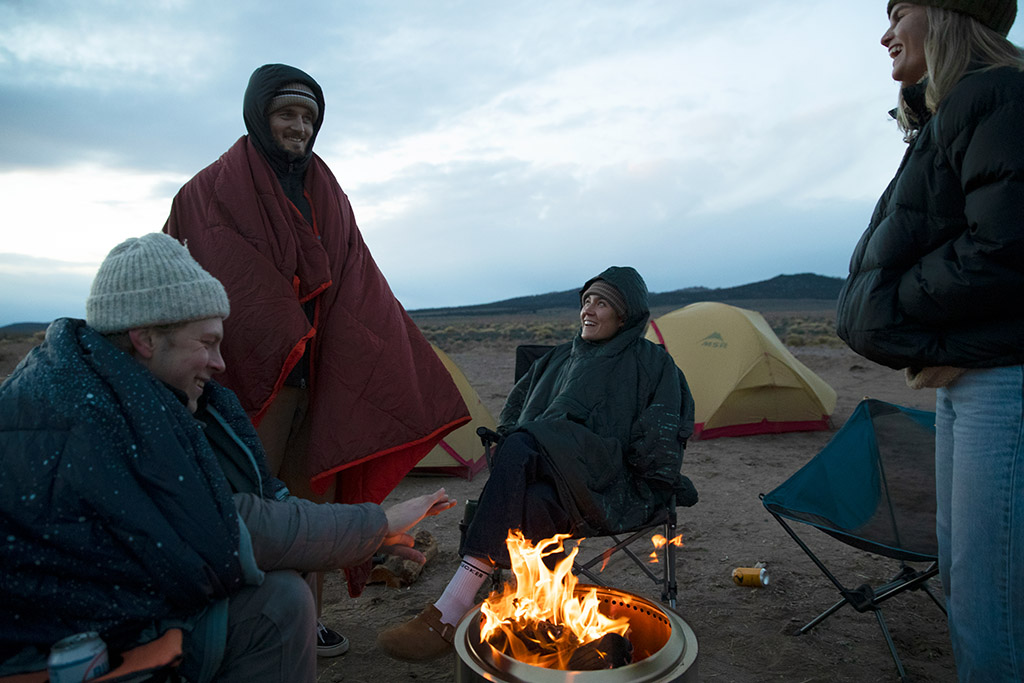
6. Find Ways to Stay Connected with Your Friends
Many thru-hikers experience the winter blues or post-trail depression because of the sudden disruption to their social lives. After spending months on trail, frolicking with friends, it can be really difficult to transition to a life without these regular interactions. But the good thing about living in the age of the internet is that you can create some virtual opportunities to stay connected.
Consider starting a group chat with your pals. Schedule a zoom meeting to check in every once in a while. And try to connect with the hikers you know who are local to where you live. Doing so may help you to feel less alone during the off-season.
Integrate What You’ve Learned into Your Life
Commonly, thru-hikers undergo powerful shifts in perspective, which can cause you to outgrow pieces of your old life. To bridge the gap, find ways to integrate what you’ve learned on trail into your life.
Say, for example, you really came to love the simplicity of the trail. Maybe you can declutter your home or look for ways to simplify your normal life. If you want to live more in alignment with your values, consider looking for a job change or a geographical change to keep you close to the mountains. While you probably won’t be able to integrate every aspect of trail life into your normal life, it may help to look for ways to integrate some of the lessons you learned.
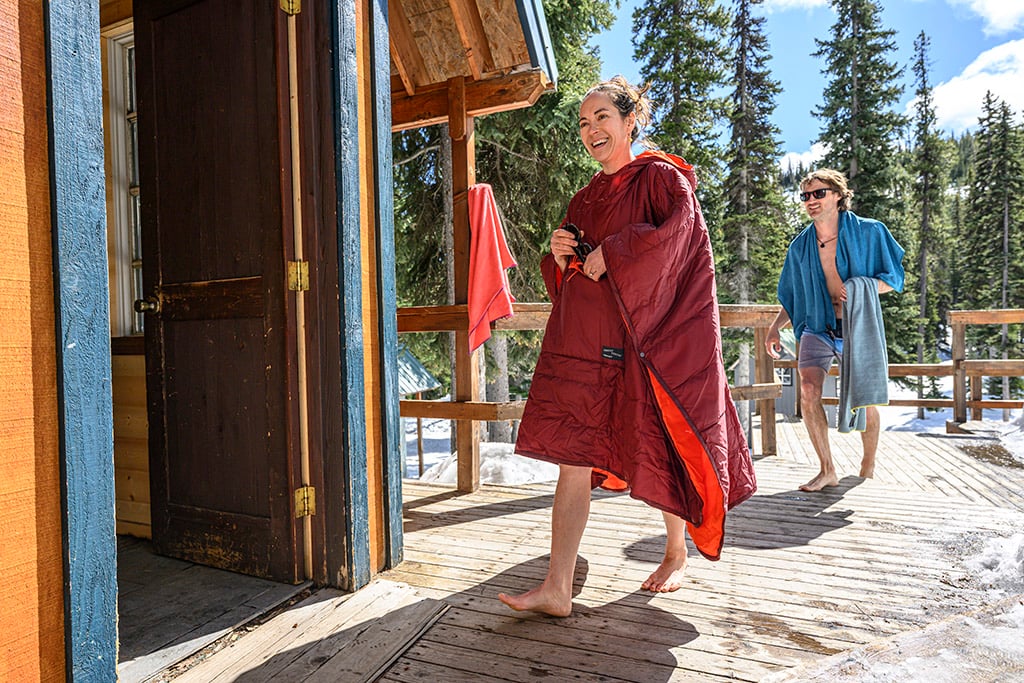
Final for Getting Through the Off-Season
Everyone is different, which means that finding the right recipe to get past the winter blues will probably take some time and internal exploration. But there are a few things that might help.
- Don’t be afraid to consult a clinician. They’re trained to help you manage and optimize your mental health.
- Take some time to practice self-care. Thru-hiking takes a ton of mental and physical resources. Replenishing some of those resources is essential.
- Remember that change takes time, so don’t lose hope. Once you identify areas of your life that you’d like to adjust, start taking small steps to get where you want to be.
- Find or re-discover hobbies and past-times that inspire you.
Completing a several-month-long undertaking is a tremendous accomplishment. But the moment we reach the end, many of us immediately begin feeling overwhelmed or stressed out about our next steps. The good news is that we’re not alone.
Many thru-hikers experience this post-trail depression. Talking about it with trusted friends or family may be a helpful step. Spending time with your feelings, resting, and taking care of yourself may also help. While there’s no simple cure to the winter blues, finding productive ways to spend the off-season may help you get through the thick of it and to stay motivated for your next adventure.
Related Posts:
